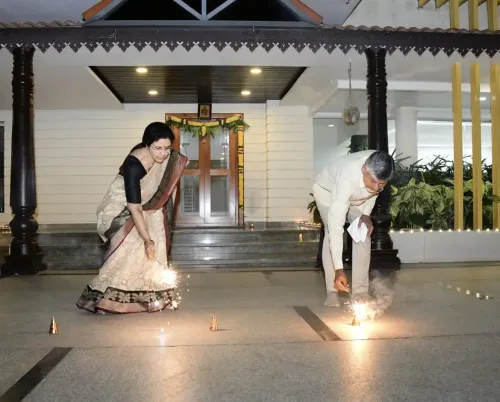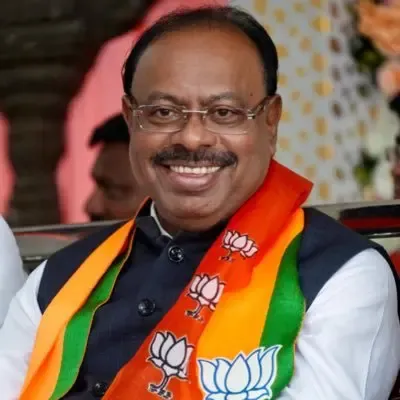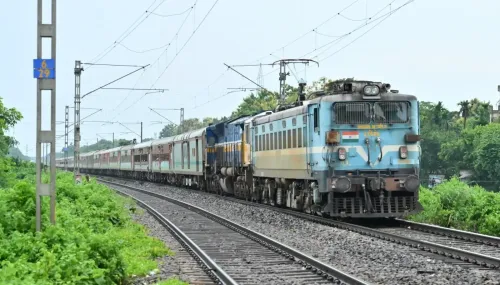How is Nitish Kumar Preparing for the Pitru Paksha Mela in Gaya?

Synopsis
Key Takeaways
- Nitish Kumar reviews preparations for the Pitru Paksha Mela.
- The mela is a significant event in Hindu tradition.
- Strict security measures are in place for the Chief Minister's visit.
- Devotees gather to perform 'pind daan' rituals.
- Special arrangements are made by the Bihar government each year.
Patna, Sep 3 (NationPress) The Chief Minister of Bihar, Nitish Kumar, visited Gaya on Wednesday to evaluate the preparations for the forthcoming Pitru Paksha Mela, which is one of the most important religious events for Hindus in the area.
His visit commenced with a prayer at the Vishnupad temple, where he carried out rituals within the sanctum sanctorum.
Nitish Kumar then assessed the arrangements at major locations, such as the Falgu River, Rubber Dam, Devghat, and Sitakund, requesting detailed updates from officials regarding ongoing preparations to guarantee the fair's smooth operation.
Following this, he presided over a review meeting at the Gaya Collectorate, focusing on development projects and arrangements related to the mela.
Key officials, including the District Magistrate and SSP of Gaya, attended the meeting.
The Chief Minister is also set to visit Chakand block, where he will engage with Jeevika Didis and lay the foundation stones for several initiatives.
Afterward, he will head to Belaganj, the constituency of JD(U) MLA Manorama Devi, to address a significant public gathering at Padav Maidan, where a large crowd is anticipated.
In light of the Chief Minister's visit, strict security measures have been implemented.
The Pitru Paksha Mela is set to commence on September 8 and will last for about two weeks, providing pilgrims the opportunity to engage in spiritual ceremonies and prayers that are deeply rooted in Hindu traditions.
This event is a major religious gathering, with Gaya being one of the most sacred places for carrying out these ancestral rituals.
Every year, devotees from around the world who embrace Hindu culture flock to Gaya to conduct the 'pind daan' rituals for their ancestors during the Pitru Paksha Mela.
Alongside Gaya, significant crowds are also observed in the Punpun block of Patna, where similar ancestral rites are performed with utmost dedication.
The Bihar government makes special provisions each year to ensure that attendees of the fair have access to adequate facilities, including accommodation, transport, and other amenities.








